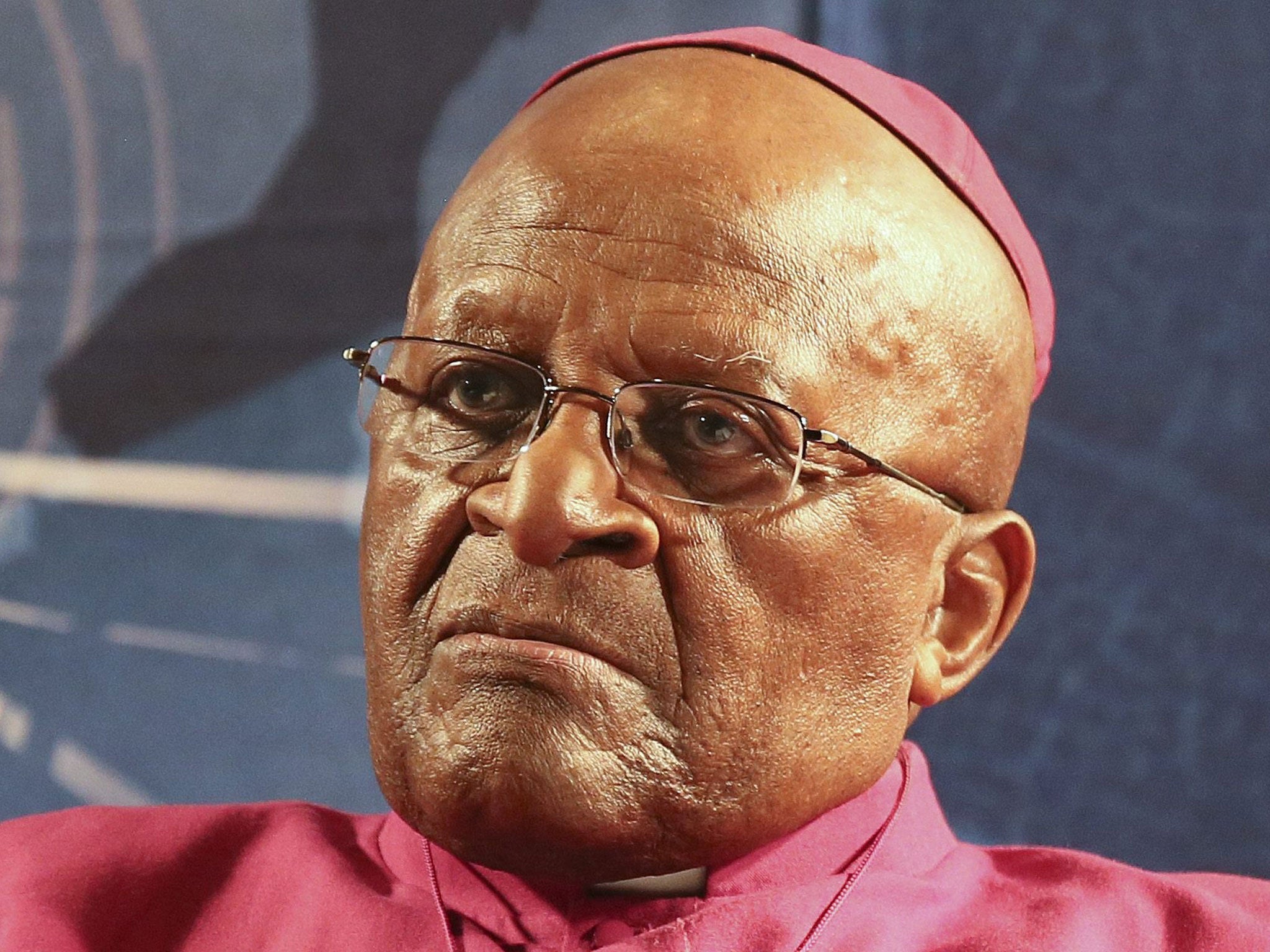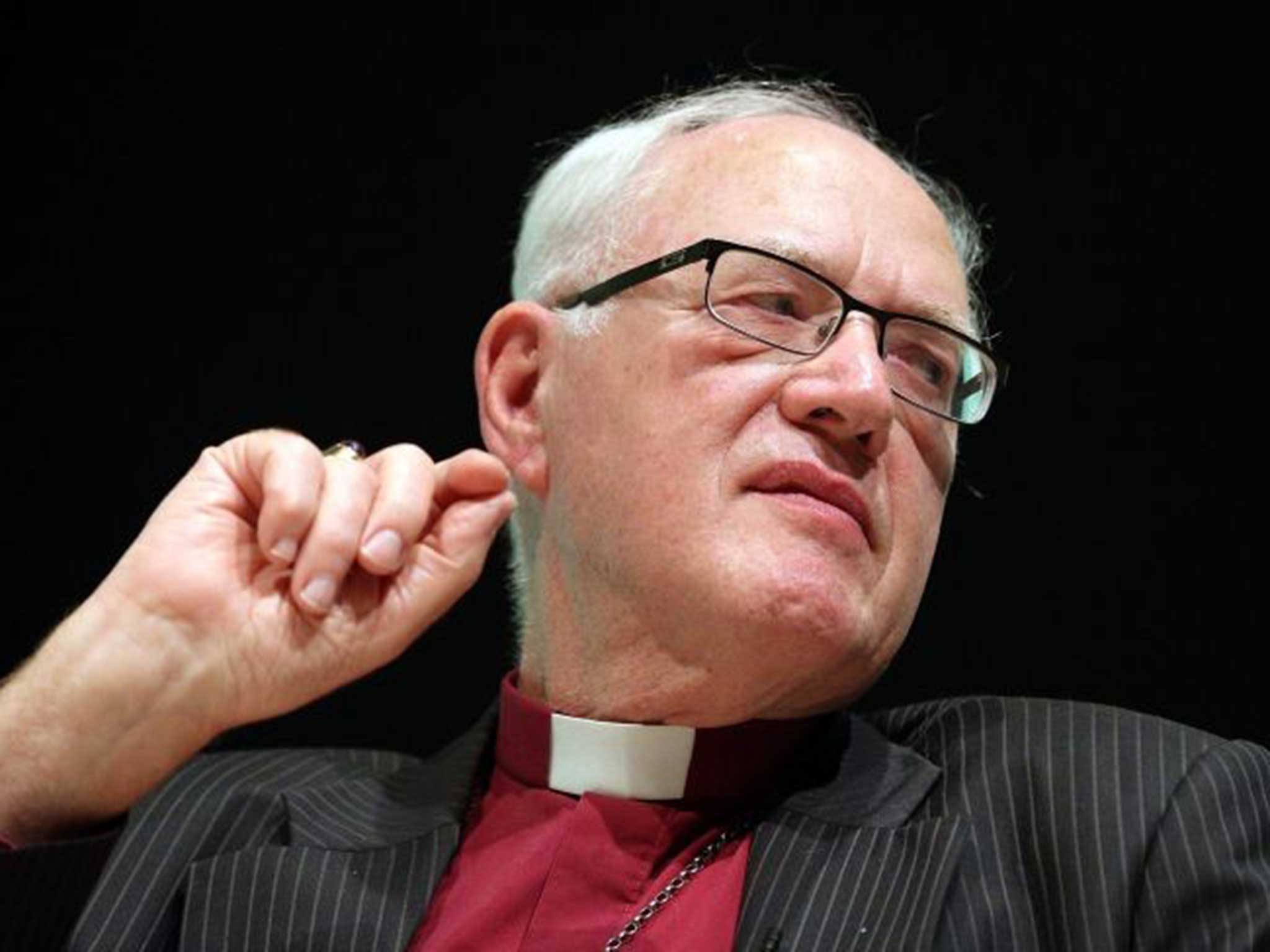Desmond Tutu: I approve of assisted dying
Former archbishop calls for ‘dignity for the dying’ ahead of pivotal Lords debate

Your support helps us to tell the story
From reproductive rights to climate change to Big Tech, The Independent is on the ground when the story is developing. Whether it's investigating the financials of Elon Musk's pro-Trump PAC or producing our latest documentary, 'The A Word', which shines a light on the American women fighting for reproductive rights, we know how important it is to parse out the facts from the messaging.
At such a critical moment in US history, we need reporters on the ground. Your donation allows us to keep sending journalists to speak to both sides of the story.
The Independent is trusted by Americans across the entire political spectrum. And unlike many other quality news outlets, we choose not to lock Americans out of our reporting and analysis with paywalls. We believe quality journalism should be available to everyone, paid for by those who can afford it.
Your support makes all the difference.Desmond Tutu has spoken out in favour of assisted dying for the terminally ill, days before the controversial subject is set to be debated in the House of Lords.
The retired Anglican archbishop said that he reveres the sanctity of life, “but not at any cost”, adding that he now wants to apply his mind “to the issue of dignity for the dying”.
The 82-year-old said the treatment of his friend Neslon Mandela, who endured a long and difficult illness in which was hospitalised a number of times to keep him alive, was “disgraceful”.
Writing in the Observer, Tutu cited an incident when Mandela was required to appear with political leaders shortly before his death, stating that it was clear that Mandela “was not fully there”, was “an affront to Madiba’s dignity”.
Tutu has made it clear that he does not want his life to be prolonged: “I don’t want people to do their damnedest to keep me alive,” he said.
"Yes, I think a lot of people would be upset if I said I wanted assisted dying. I would say I wouldn't mind, actually," he added.
The religious leader’s comments come days before a pivotal debate in the House of Lords. On Friday, Lord Falconer’s assisted dying bill will be debated by a record number of peers, with 110 already registered to speak.
The bill proposes that doctors should be able to legally assist “competent, terminally ill” patients in their wish to die by handing over lethal medication, if it is believed the patient has less than six months to live.

Lord Carey, the former archbishop of Canterbury, shocked the church by his dramatic change in position on the proposed law, stating: “The fact is that I have changed my mind.” He dropped his opposition of the bill “in the face of the reality of needless suffering”, he said.
But the Anglican Church remains in opposition to the bill and has called for an inquiry into assisted dying, with the current Archbishop of Canterbury Justin Welby calling it “mistaken and dangerous”, warning that elderly and severely disabled people would face pressure to end their lives if the bill were passed.
The Church of England is circulating a letter written by a dying clergyman to every member of the House of Lords in a bid to stop the law being passed.
The letter is written by Rev Christopher Jones, a former chaplain of St Peter’s College, Oxford, and advisor to the Archbishop’s Council, while he was dying of cancer.
Jones, who died in 2012, wrote in the letter that while he experienced “extreme stress and a sense of hopelessness” when he knew his condition was terminal, and that he would have been open to assisted dying, were it an option.
However, he later experienced a renewed “energy and vitality” that he described as being “recalled to life” when his cancer went into remission, and experience that he would have been denied, had he chosen to end his life earlier.
Join our commenting forum
Join thought-provoking conversations, follow other Independent readers and see their replies
Comments